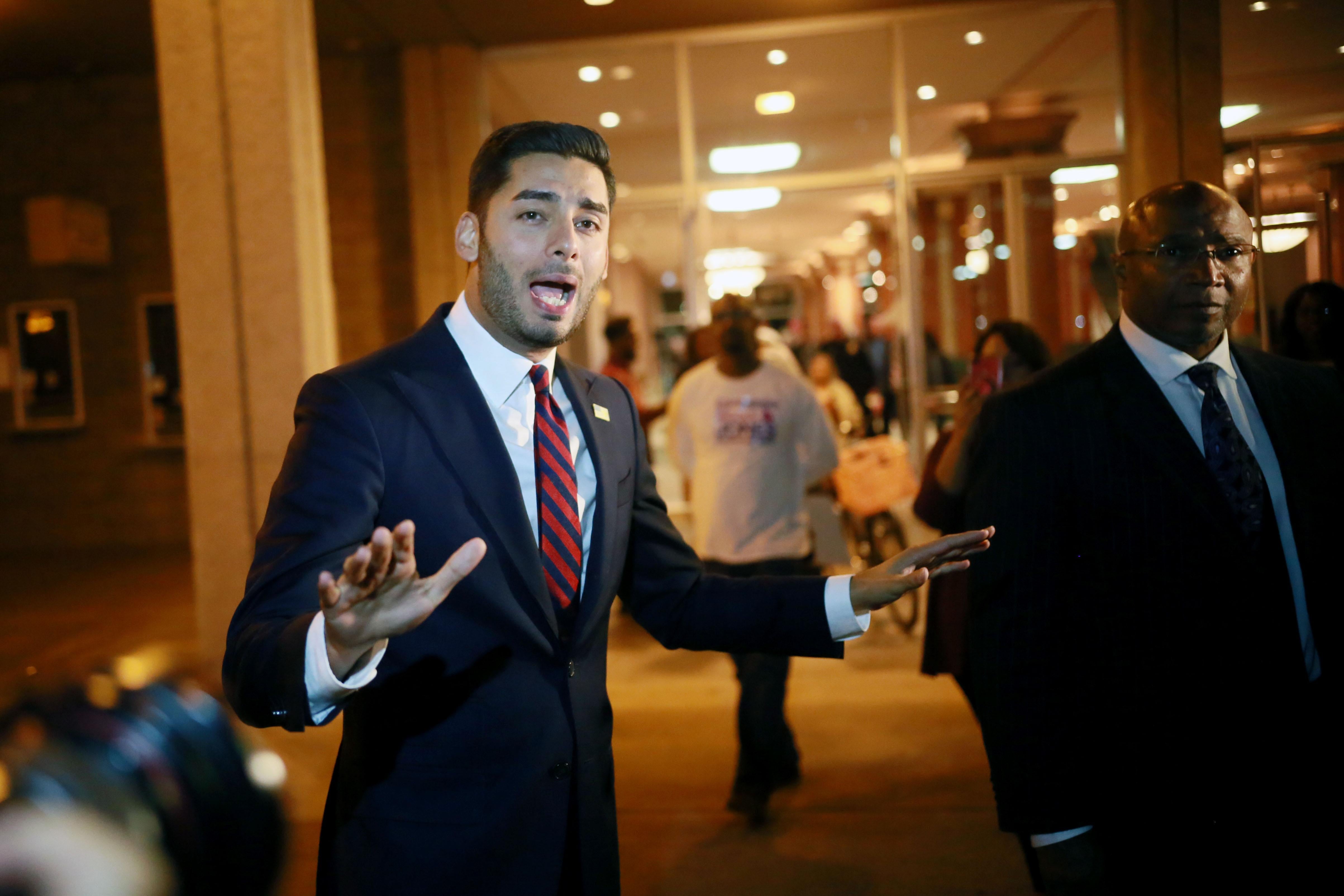Every time congressional races heat up, Muslim Americans again prepare for a barrage of xenophobic campaign ads that vilify them. In the Trump era, with the perceived success of his anti-Islam demagoguery, they’ve only gotten worse. But even by those standards, what happened yesterday in California’s 50th district is chilling—and it shows just how brazen and shameless these attacks can be.
The race was between incumbent Republican Rep. Duncan Hunter and 29-year-old Democratic challenger Ammar Campa-Najjar. Campa-Najjar was considered a longshot in a reliably conservative district until last summer, when Hunter received a 60-count federal indictment for, among other things, using campaign funds for lavish travel, tequila shots, and expenses for his rabbit. He then tried to blame his wife for it. Even for a safe congressman, a federal indictment is hard to overcome, and Campa-Najjar suddenly seemed like he had a shot.
Campa-Najjar, like Hunter, is a Christian born in America. Unlike Hunter, he has a Mexican American mother, a Palestinian father, and an Arabic name. Hunter and his campaign believed that might be enough, so they launched a bigoted effort to smear him.
Specifically, Hunter seized on Campa-Najjar’s grandfather’s alleged involvement in the 1972 Olympics terrorist attack to go after him, despite the fact that the grandfather died 16 years before Campa-Najjar was born. The centerpiece of this effort was an incredibly racist ad, widely denounced, that suggested Campa-Najjar is a “security risk” because of this purported connection. The ad, which remains online, is almost funny in how crudely it pulls from the anti-Muslim playbook. It seemed desperate, absurd, sure to fail, from a congressman who may well be headed to prison.
But it didn’t fail. Duncan Hunter won his race last night, and it wasn’t even close.
It’s hard to say for certain why Hunter won. The district went for Trump by 15 points, and Hunter’s father held the seat for 30 years before he took over in 2008. Still, it seems amazing, even in this race, that such a ridiculous, demonstrably false smear against another candidate wasn’t itself disqualifying, especially from someone who was just accused of stealing by federal authorities. In his breakdown of the race, McKay Coppins wrote that it became “the most anti-Muslim campaign in the country”—and it didn’t even have to target a Muslim. This is where we’ve arrived.
Hunter’s ploy was shameless, but then why would he have shame? Muslims vote 2-to-1 for Democrats, and they represent only around 1 percent of the population. What’s stopping Republicans from serving them up to bigoted voters? One recent report shows 80 candidates for office this cycle relied at least somewhat on anti-Muslim sentiment. It’s clearly seen as both an acceptable and favorable outlet for white voters’ anger. In other words, in the country where I was born, candidates dehumanizing my community can still be a winning strategy.
The good news is that’s not always true: The majority of those candidates either dropped out or lost. But the damage may be done. We’ve seen that damage in increased anti-Muslim sentiment and violence that’s risen above 2001 levels. It’s not just individual incidents, either; this rhetoric has traveled to the heart of Muslims’ ability to participate in civil life. By one measure, nearly 1 in 5 Americans now think Muslim Americans should be denied the right to vote.
For Muslims, this is incredibly disquieting. And this cycle only seems likely to escalate as we move on to 2020. I find some hope in knowing that disinformation campaigns against Muslim Americans have also been partly responsible for a surge in Muslim American candidates, and we’ve had some remarkable successes. As long as the GOP continues to bank on xenophobia to rile its base ahead of an election, it can also depend on more Muslims signing up to run against it. But for all the mixed-to-good news from these midterm elections, what happened in California’s 50th feels like special cause for alarm. As we’ve seen before—and I fear we will see more—you don’t even have to be Muslim to be the target of Islamophobic suspicion—you only have to look like us.
